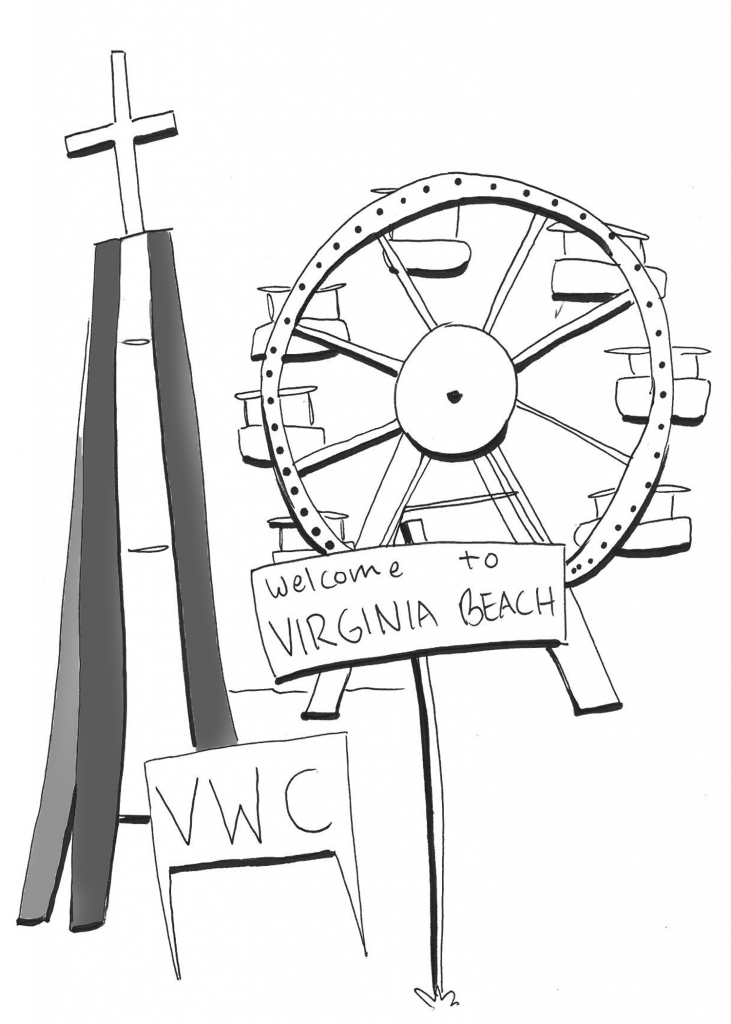Crosson and his travel sports team pose for a photo.
Crosson Miller|Marlin Chronicle
Crosson is a senior studying Sports and Recreation Management with a minor in Media and Communications.

McKenna Howenstine|Marlin Chronicle
Over the past decade, youth travel sports have transformed into a booming market in America. They offer young children the opportunities to compete at a high level, travel and develop specialized skills. This is a trend in most youth sports such as soccer, baseball, softball, lacrosse and basketball. However, the commercialization of youth sports is prompting a variety of adverse effects on our country and the future lives of these athletes.
The economic weight of travel sports can be staggering. Families frequently find themselves spending thousands of dollars each season on things such as uniforms, registration fees, travel expenses, equipment, lodging and food. This creates a divide between families that can afford it, and those that cannot. This divide leads to an arrogant, short-sighted culture that encourages financial investment in children over talent and dedication. Therefore, most children in lower income families cannot participate in the travel sports scene, hindering their potential and limiting equal opportunity in youth sports.
Additionally, the hyperfocus on skill and competition leads to burnout in the young athletes. Many children are training all year, which comes with sacrificing focus that could be spent on their academics, social opportunities and mental health. The pressure to perform is overwhelming, especially after parents have spent thousands of dollars. This burnout leads to injuries, anxiety and even depression in young athletes. The unwavering commitment to greatness sounds ideal for athletic development, but instead it’s harming our youth outside of sports and taking away the love of the game.
The culture of youth travel sports also pushes a harmful mindset that prioritizes results over values. Values and lessons should be the most important part of youth sports. Youth athletics provides children the opportunity to learn leadership, teamwork and interpersonal growth. However, parents and coaches are pressuring young athletes to prioritize their performance, creating a troublesome atmosphere. This leads to an unhealthy fixation with results that extends beyond sports, changing how children view themselves compared to others.
Moreover, the commercialization of youth sports has led to a business driven focus on profit over participation. Youth athletic organizations are managed by businesses prioritizing economic benefit, often at the cost of the children’s mental and physical health. This movement towards profit demand has compromised the virtue of youth sports. The emphasis should be about social and personal development, not generating revenue.
Finally, the effect of youth travel sports reaches past any singular athlete. Sports have long been a driving force that hold communities together, serving as a common interest that everyone can get behind. Now with elite travel sports, communities are suffering because families aren’t investing in local leagues. This dismisses the sense of pride in community that local sports foster. The fellowship and experiences that conventionally unite communities through local sports are now lost in this landscape of youth travel sports.
While youth travel sports offer some benefits, the consequences are more damaging. The economic constraints, mental health challenges and loss of community created by this shift show that the current model of youth sports needs to be changed. By shifting the focus back to the true meaning of sports—inclusive participation, intrinsic satisfaction and personal growth—we can produce a healthier environment for young athletes. It’s time to prioritize the well being of our youth over money and success, guaranteeing that sports remain a positive outlet in their lives moving forward. We can do this by signing our kids up for local teams and putting more of an emphasis on school sports than elite travel sports.
By Crosson Miller


